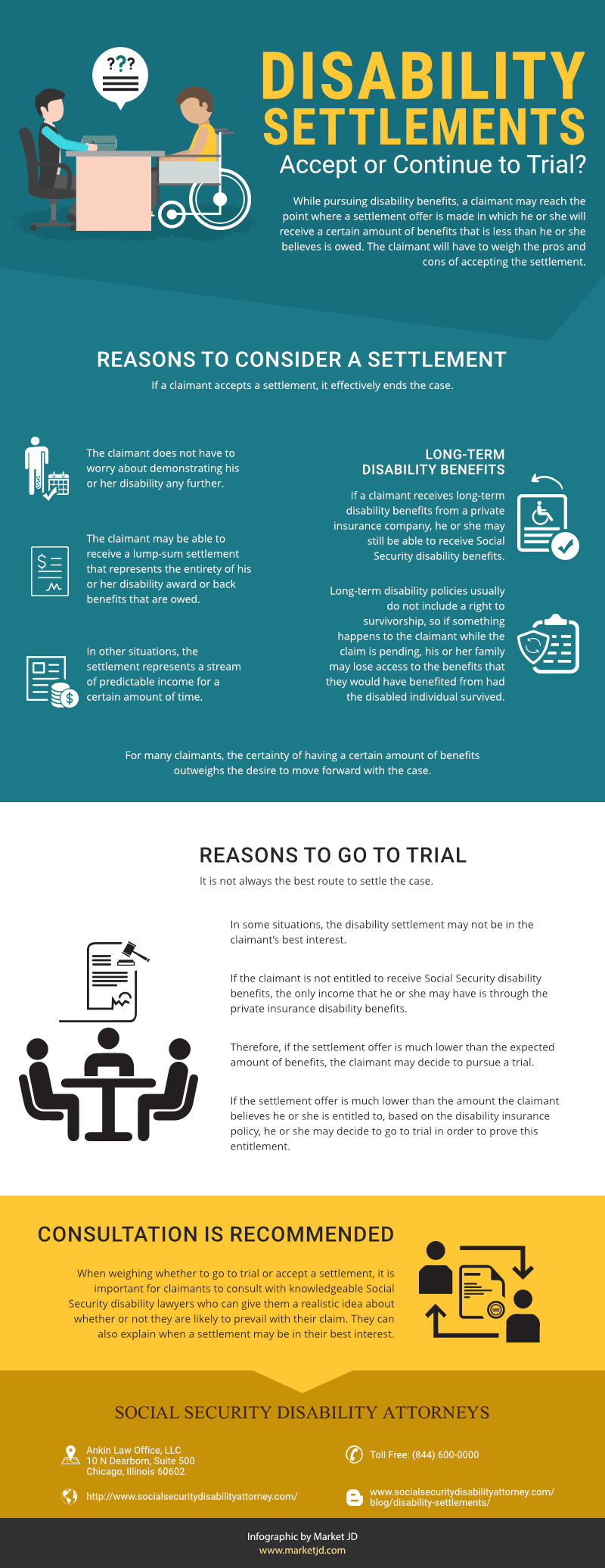While pursuing disability benefits, a claimant may reach the point where a settlement offer is made in which he or she will receive a certain amount of benefits that is less than he or she believes is owed. The claimant will have to weigh the pros and cons of accepting the settlement.
(Article continues below Infographic)

Reasons to Consider a Settlement
If a claimant accepts a settlement, it effectively ends the case. The claimant does not have to worry about demonstrating his or her disability any further. The claimant may be able to receive a lump-sum settlement that represents the entirety of his or her disability award or back benefits that are owed. In other situations, the settlement represents a stream of predictable income for a certain amount of time. If a claimant receives long-term disability benefits from a private insurance company, he or she may still be able to receive Social Security disability benefits. Long-term disability policies usually do not include a right to survivorship, so if something happens to the claimant while the claim is pending, his or her family may lose access to the benefits that they would have benefited from had the disabled individual survived. For many claimants, the certainty of having a certain amount of benefits outweighs the desire to move forward with the case.
Reasons to Go to Trial
It is not always the best route to settle the case. In some situations, the disability settlement may not be in the claimant’s best interest. If the claimant is not entitled to receive Social Security disability benefits, the only income that he or she may have is through the private insurance disability benefits. Therefore, if the settlement offer is much lower than the expected amount of benefits, the claimant may decide to pursue a trial. If the settlement offer is much lower than the amount the claimant believes he or she is entitled to based on the disability insurance policy, he or she may decide to go to trial in order to prove this entitlement.
When weighing whether to go to trial or accept a settlement, it is important for claimants to consult with knowledgeable Social Security disability lawyers who can give them a realistic idea about whether or not they are likely to prevail with their claim. They can also explain when a settlement may be in their best interest.



